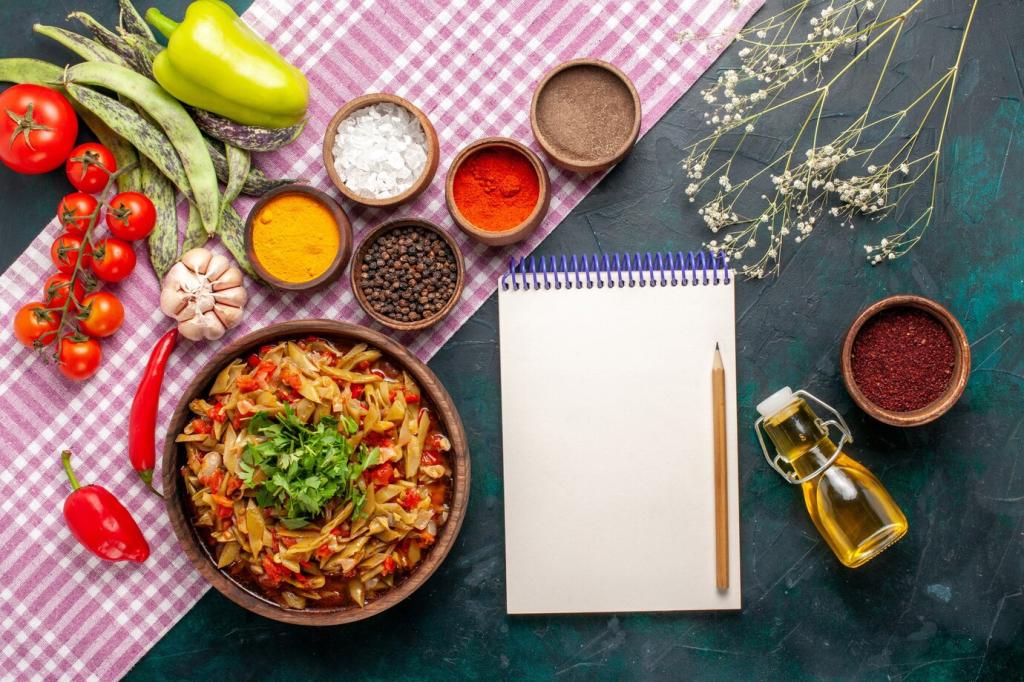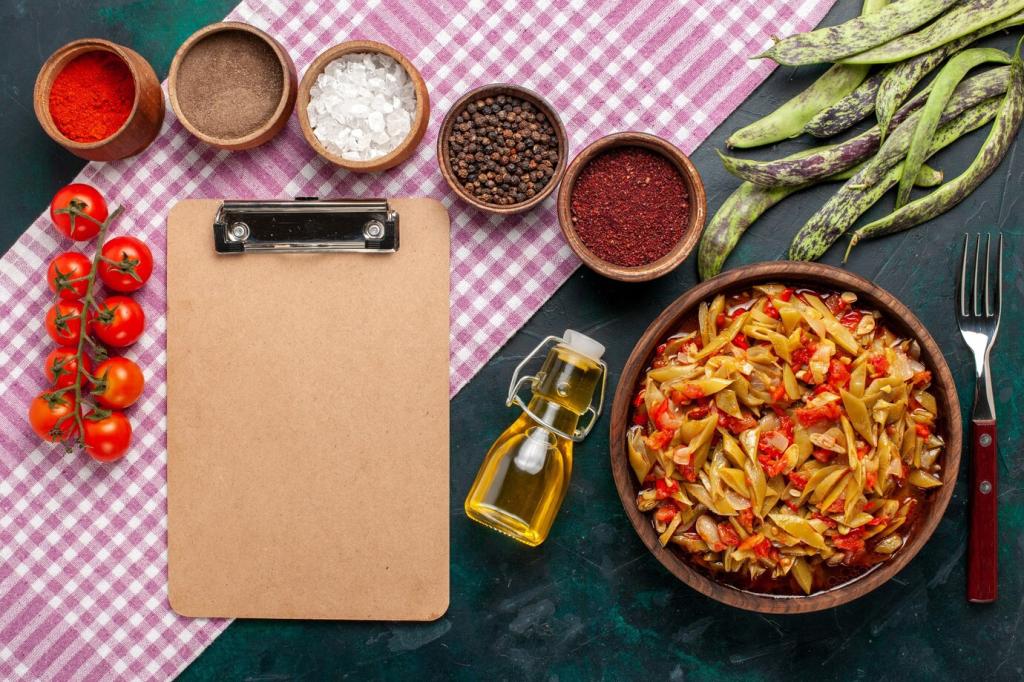Celebrate Plant-Based Cookbooks for Vegans
Selected theme: Plant-Based Cookbooks for Vegans. Open the cover on a world where well-tested recipes, thoughtful headnotes, and practical kitchen wisdom make plant-based living joyful, doable, and delicious. Stay with us, share your favorite titles, and subscribe for fresh shelf inspiration every week.

Why Vegan Cookbooks Matter Right Now
A great cookbook compresses months of testing into pages you can trust, translating tricky steps into clear cues and dependable timings. Instead of scrolling through mixed advice, you get precise methods, substitution notes, and troubleshooting guidance that consistently deliver dinner, not disappointment.
Why Vegan Cookbooks Matter Right Now
Headnotes and author anecdotes show why a recipe exists, how to adapt it, and what moments it can nourish. Those small stories stick. They make you try the soup on rainy Thursdays, batch-cook grains on Sundays, and stock your pantry with confidence instead of confusion.
Why Vegan Cookbooks Matter Right Now
Plant-based cookbooks often highlight seasonal produce, storage strategies, and low-waste techniques, turning environmental goals into delicious rituals. With shopping lists and prep plans, you buy what you need, use what you have, and enjoy meals that respect both your budget and the planet.
Match layout to your skill level
Beginners benefit from step-by-step photos, glossary pages, and bolded visual cues for doneness. More advanced cooks may prefer concise methods, technique sidebars, and variation charts. Skim a sample recipe to see if the pacing, measurements, and explanations feel like a conversation you can follow.
Check ingredient accessibility
Scan the pantry list and substitution notes. A friendly vegan cookbook guides you from everyday staples—beans, whole grains, frozen vegetables—to special items like miso or smoked paprika without overwhelm. It should offer easy swaps and realistic sourcing tips for small-town or budget-conscious cooks.
Look for nutrition clarity and balance
Thoughtful plant-based cookbooks provide protein options, fiber-rich sides, and guidance on fats, iron, and B12 sources. Clear portion notes and make-ahead tips help you plan satisfying meals. If nutrition matters to you, seek titles with transparent macros or registered-dietitian insights presented without fear or judgment.

Essential Features of Standout Vegan Cookbooks
An ingredient index lets you cook from what is already in your fridge. Seasonal charts help you pivot from winter squash to spring asparagus without reinventing your plan. These features reduce waste, save time, and spark creativity when life is busy but you still want something vibrant.
Look for concise lessons on pressing tofu, coaxing creaminess from cashews, working with aquafaba, and developing seitan texture. Each primer turns a once-intimidating technique into a repeatable habit, so every new recipe becomes faster, tastier, and more satisfying to make again and again.
Great headnotes tell you why a step matters, what can be prepped ahead, and how to salvage common mistakes. A reliable FAQ or troubleshooting sidebar keeps you calm when sauces split, beans resist softening, or a sheet pan browns unevenly—saving dinner and your evening mood.



Stories From a Plant-Based Cookbook Shelf
One rainy afternoon, a simmering pot from a bookmarked chapter turned into a small gathering. The book suggested a squeeze of lemon and toasted cumin at the end. Two tweaks, ten minutes, and six compliments later, that page is wrinkled with splashes and fond memories worth repeating.
Stories From a Plant-Based Cookbook Shelf
My first attempt at a glossy noodle bowl looked messy but tasted fantastic. The headnote admitted the author’s early bowls were lopsided too. That honesty kept me cooking, and I now trust the process more than the photo—because flavor, not symmetry, keeps families around a table.
Spice maps and regional wisdom
From berbere to garam masala, authors explain layering spices rather than just listing them. Good books guide toasting, blooming, and balancing heat with acidity. They share cultural context so you can appreciate flavor lineages while cooking respectfully and deliciously on an ordinary Tuesday night.
Fermentation, depth, and comfort
Titles that teach miso, kimchi, and quick pickles unlock savory depth without dairy. Clear safety notes, salinity ranges, and timing charts help beginners ferment confidently. With a spoon of tangy kraut or a dab of chili paste, humble vegetables suddenly taste travel-stamped and restaurant-level.
Passport pages on your bookshelf
Create a mini itinerary: one recipe from three continents this month. Let your grocery list be your boarding pass. Tell us which cookbook stamped your palate with something new, and subscribe to vote on next month’s region for our community cook-along and photo round-up.


Build Your Plant-Based Cookbook Club
Rotate themes—sheet-pan suppers, soups and stews, five-ingredient weeknights, or lunchbox heroes. Assign chapters in advance, share shopping tips, and trade freezer-friendly portions. A simple structure makes it realistic, and a potluck tasting turns pages into conversations that everyone looks forward to.
Build Your Plant-Based Cookbook Club
Use a one-page scorecard: flavor, clarity, timing accuracy, substitution friendliness, and repeat factor. Short comments become gold for other readers choosing books. We will compile highlights into a monthly digest, so subscribe and help the community pick next quarter’s spotlight titles.
